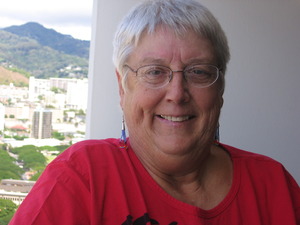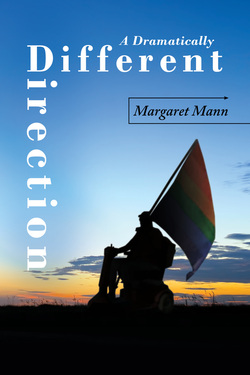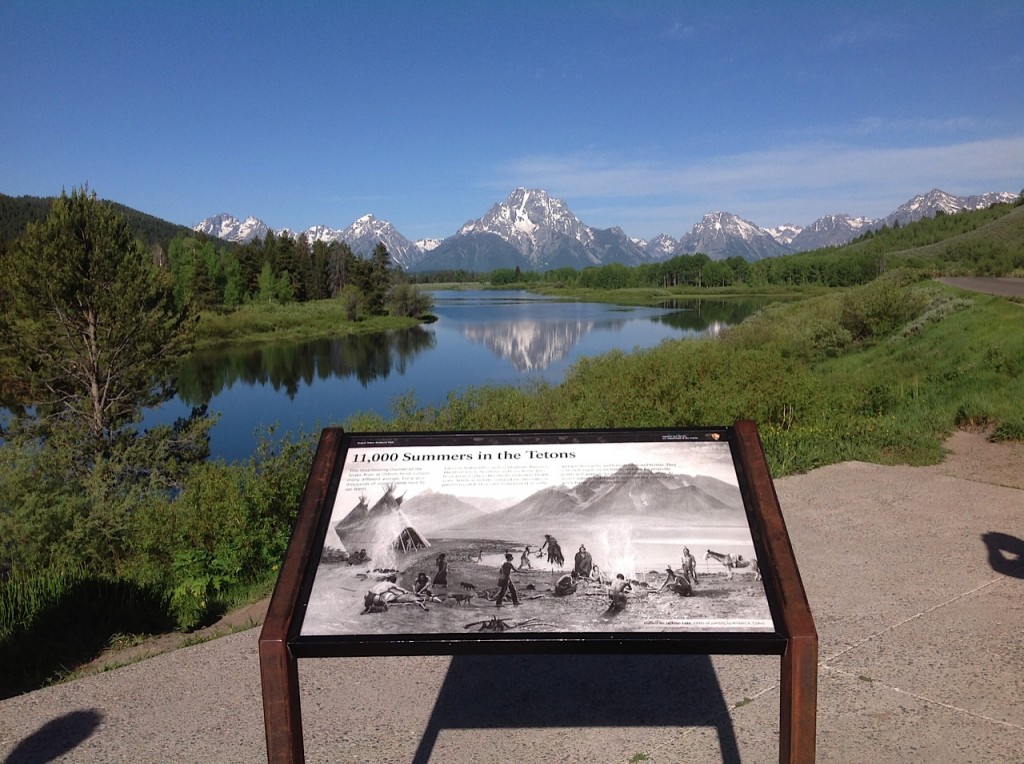Notes from
“Conscience and
Calling: Ethical Reflections on Catholic Women’s Church Vocations”
A WATER teleconference with
Anne E. Patrick
Wednesday, March 5, 2014
1 pm – 2 pm EST
WATER is
grateful to Dr. Anne E. Patrick for leading a teleconference on her new book, Conscience and Calling: Ethical Reflections
on Catholic Women’s Church Vocations (London: Bloomsbury, 2013). The book
is meticulously documented, written in an accessible style, and full of good
analysis of difficult situations. The bottom line is that Catholic women have
moved from a default reaction of obedience to a considered embrace of
responsibility as moral, intellectual, and spiritual agents. This book traces
some of that evolution and points to even more to come.
Following
are Anne’s presentation notes that she has graciously shared with us. Then
there are some questions from participants and Anne’s responses. These are not
meant to be comprehensive notes, but simply to give the flavor of the
discussion. Feel free to listen to the whole teleconference at
http://www.waterwomensalliance.org/teleconferences-audio-and-notes/
.
WATER Teleconference
Anne E. Patrick, SNJM
Thank you, Mary, for your introduction,
and for inviting me to discuss CONSCIENCE & CALLING today. I’ve long
admired the creative work that you and Diann Neu and your staff colleagues are
doing at WATER, and the way you’ve made so many connections with religious
feminists around the world. It’s exciting to be giving a WATER teleconference,
and I look forward to our discussion very much.
Essentially
my book calls for including women in all ministries of the Roman Catholic
Church on an equal basis with men. To argue for this change I give ethical and
theological reasons, and tell lots of stories. In the third chapter, for
example, I outline the history of an idealistic group of sisters that got
started five years after Vatican II, the National Assembly of Women Religious
(later called the National Assembly of Religious Women). Although NAWR/NARW
lasted only 25 years, it helped launch two groups that have continued its
mission for justice: the WOMEN’S ORDINATION CONFERENCE, and NETWORK, the
Catholic social justice lobby, now famous for “NUNS ON THE BUS.” Elsewhere in
the book I tell the story of the Roman Catholic Womenpriests movement, which
has been largely the work of women not in religious vows. This movement began
with the ordination of seven women on the Danube River in 2002. Although its
leaders have been formally excommunicated, they continue to claim a Catholic
identity. Members now offer sacramental ministry in the Catholic tradition to
more than sixty communities in the U.S. and Canada, and they seek to express “a
new model of ordained ministry in a renewed Catholic Church.” The jury is still
out on whether in a century or two these women will be thought of as more like
St. Catherine of Siena or Martin Luther, or indeed whether by then we may be
calling him St. Martin. I believe the words of Gamaliel from Acts chapter 5
concerning the preaching of St. Peter are relevant to the womenpriests
movement: To quote verses 38 and 39: “For if this idea of theirs or its
execution is of human origin, it will collapse, but if it is from God, you will
never be able to put them down. . .”
How did it happen it that so many
nuns and other lay women have gained the ability to speak and act courageously
in a religious institution that trained us to be docile, unquestioning, and
submissive to male religious authorities?
It takes more than one book to
answer that question, but I can say that a great transformation in Christian
ideals of virtue took place in the last century. Whereas before World War II
the main emphasis was on obedience and doing one’s duty, after the war, there
was a shift in emphasis toward something called “responsibility.” The ethicist
Albert Jonsen has traced this development [in Responsiility and Modern Religious Ethics, 1968] and shown that
after the trials at Nuremburg, when Nazis tried to justify their crimes by
saying they were only being obedient, following orders—after these trials some
very influential thinkers brought the concept of responsibility to the fore.
Since that time, this shift from a moral ideal of duty and obedience to one of
responsibility has been combined with insights from feminism, with the result
that many Christians have moved from a “patriarchal” understanding of virtue to
a “feminist” one.
In Conscience and Calling, I illustrate this change by analyzing two
cases where my religious community, the Sisters of the Holy Names of Jesus and
Mary, dealt with injustice on the part of priests and bishops in the twentieth
century. I’m sure many church women can tell similar stories, but these two
cases are particularly interesting because the responses to injustice before
the Second World War were so different from the way things were handled after
the war and Vatican II.
A Case from the
Brooklyn Diocese, 1939
In June 1939,
five Sisters of the Holy Names withdrew from the school at St. James, Long
Island after suffering for years from a domineering pastor. They loved the
people and their teaching work, but Father Murphy controlled the heat and hot
water, and forbade the sisters to talk with parishioners or accept rides from
them, although they had no car. Even after the sisters had raised money to buy
a furnace, the pastor kept the thermostat turned down and locked. The pupils
wore coats in the classrooms, and the sisters’ health suffered. In their
convent home they could have hot water for bathing only on Wednesdays and
Saturdays. They were grateful when members of their community came by train
from Coney Island, where they staffed a thriving school and enjoyed a very
positive relationship with the pastor, Father Froelich. Finally, after years of
hardship, and one sister’s hospitalization for pneumonia, the provincial
superior felt she could no longer leave sisters at St. James.
When Mother Mary of Lourdes told
Bishop Thomas Molloy of her decision, he countered by saying that if the
sisters left St. James they would have to leave the diocese, which meant giving
up the much-loved school on Coney Island. She replied, “Very well, your
excellency, we will withdraw from the diocese,” but the way she handled things
after that shows how strongly she was influenced by patriarchal ideals. She
delayed telling the sisters they were leaving both parishes until late in the
school year, and then instructed them not to discuss this with anyone. Although
the sisters at St. James could guess why they were being withdrawn, the sisters
on Coney Island had no idea it was the bishop’s fault they were leaving, and
their abrupt departure from people they loved became a source of lifelong
sorrow. Nor did the pastor on Coney Island tell the full story to the
parishioners, though he did his best, within the model of virtue reigning at
the time, to show his appreciation for the nuns and to invite the people to
accept their departure without resentment. We see this in an excerpt from the
convent chronicles for June 25, 1939.
“GRADUATION--Thirty-eight of our eighth grade
boys and girls receive graduation honors this afternoon. Rev. Francis Froelich,
Pastor, reminds them of their duties as Catholics and as American citizens, and
again emphasizes the loyalty they should prove to their school and to their
Sisters. Father seized this last opportunity to express once more his gratitude
to the Sisters.”
[There was nothing like that suggesting
gratitude in the chronicles from St. James.]
The
wording of the chronicles shows a concern not to question the judgments of
religious authorities, whether bishop or provincial superior. But clearly their
author is worried that the parents might be hurt by the sudden departure of the
sisters from their children's school because of what was said to be a “lack of
teachers” elsewhere. The last entry for Coney Island notes that “Since June 28
the sisters have gradually left, to take up their work [summer study] at the
various universities and today the remaining three bid a final farewell to the
work which has been ours for twenty-one years. God wills it thus and we humbly
submit to [God’s] designs in our regard.”
Silence and humble submission were notably
absent in the second case of conflict with ecclesiastical employers, which took
place in the Archdiocese of Miami in 1989-90. This case shows women operating
under very different ideals of what it means to be a good sister. Instead of
emphasizing obedience, denial of conflict, and institutional loyalty, their
responses to difficulties laid stress on justice, honesty, and personal
responsibility. No longer was God's will assumed to be contained within the
directives of ecclesiastical authority. Instead, they presumed that women and
men ought to dialogue together to discern what God might want for Her people.
And if dialogue proves impossible, then the people who will lose the women's
ministries have a right to know what’s been going on. Sisters are no longer
willing to “cover” for the clergy or to absorb blame for decisions beyond their
control.
A
Case in Key West, FL, 1989-90
The Sisters
of the Holy Names had played a vital role in the history of Key West, Florida,
where they operated schools from 1868 until 1983, when declining numbers led
them to withdraw. Five years later, in 1988, the pastor, Father Eugene Quinlan,
wrote to the provincial director, Sister Kathleen Griffin, describing four
positions and expressing his desire to have sisters return. And so, after much
prayer and planning, four sisters agreed to come: one as Director of Religious
Education, and another as Associate DRE. A third would write the parish
history, and the fourth would visit the sick. In August 1989, there was a
joyful celebration when these sisters came to the island.
Within months, however, things fell apart. At a
December staff meeting there was a misunderstanding between the pastor and the
sisters over whether the two religious educators should also be expected to
teach classes in Saint Mary’s School. This erupted into an emotional exchange,
and Quinlan suddenly said that none of the sisters’ contracts would be renewed.
He soon wrote to Sister Kathleen Griffin to say that salaries would be paid
through August 15, but the four sisters had to leave by July 1. She responded
that “the nature and content of your letter came as a great surprise,” and said
she needed to pray and reflect on the matter and would visit Key West again in
February. On January 8, Quinlan wrote to Griffin that his decision was final. A
week later she met with the Vicar for Religious in Miami, Sr. Denise Marie
Callaghan, to explore “approaches to solutions,” but this proved fruitless.
Griffin was unable to obtain an appointment with Archbishop Edward A. McCarthy,
or even “even acknowledgement that correspondence or phone calls were received
between mid-January and May.”
Meanwhile the provincial agreed to meet with a
group of parishioners who had asked to “gain some understanding of why the
sisters were leaving so that they, too, could seek solutions.” After the
meeting, Griffin and three councilors wrote to the archbishop and the members
of St. Mary Star of the Sea Parish. This letter of March 29, 1990 was also
shared with all the New York Province Sisters of the Holy Names. Such a step
would have been unthinkable in the days of Mother Mary of Lourdes’ conflict
with the bishop of Brooklyn fifty years earlier. The letter describes the
sisters’ sorrow at being dismissed so soon after returning to the island, and
reminds everyone of the historical background:
“The people of Key West hold a unique place in
the hearts and in the history of the Sisters of the Holy Names. . . . [I]n
1868, before bridges, railroad or air travel, we came to Key West, bought and
cleared our land and began our ministry of education in the faith. During
periods when there were no priests on the island we were present with you to
gather people for worship, to baptize, to teach. During severe epidemics we
were present to nurse the sick, comfort the dying and conduct burial services.
During the Spanish-American War we converted the school into a hospital and
nursed the wounded. During calm and hurricanes, in periods of great economic
growth and severe depression, we were present with you, in good times and bad.
The return of four sisters to Key West was prompted by our desire to resume a
long ministerial history of response to your needs.”
The
letter concludes with the sisters’ clear statement of the message they most
wanted to leave with the people, something that their predecessors at Coney
Island had not been able to express in 1939:
“It
is not our choice to leave.
While Father Quinlan may choose to exercise his
authority to dismiss these four sisters . . . , his choice can never erode or
dismiss the affection and the bonds we sisters have with you.”
We can see in this letter how a “personal responsibility and
social justice” model of virtue has influenced Griffin and her council, in
contrast to the “military obedience and institutional loyalty” model of virtue
that held sway in the 1930s.
Well, after their meeting with Griffin,
parishioners started a public campaign to “save the nuns.” Their response
showed both their post-Vatican II optimism about having a voice in matters of
parish life and also their trust that church officials would respond favorably
to pressure tactics often employed in the United States. Thus on April 22 they
published a full-page ad in the Key West
Citizen, featuring a picture of the community’s founder in her
nineteenth-century habit, Blessed Marie-Rose Durocher, above the banner
headline “Save the Nuns.” The ad also included historical material from the
council’s letter, and declared in bold type, “It is not their choice to leave.”
Readers were encouraged to write to the archbishop and post the ad in their
windows. Laity also distributed hundreds of “Save the Nuns” buttons and
gathered nightly to pray at a shrine near the church. This campaign led to
coverage in the Miami and Key West newspapers, and even mention on CNN. Sister
Rose Gallagher, a provincial councilor, recalled:
“A biplane flew over the island after all the
masses one weekend in April trailing the message, “Father, please keep the
nuns.” It was this event that prompted the first contact from the archdiocese.
The archbishop phoned the provincial to tell her to remove the sisters as soon
as possible. [She] met with her council, talked with the sisters in Key West
and then finalized their departure in May, three months ahead of time.”
* * * * *
An idealized picture of the early church
declares, “The community of believers were of one heart and one mind,” as Luke
write in Acts 4:32, but that probably lasted about ten minutes. Disputes have
been part of Christian life from the beginning. The examples of conflict
between sisters and their ecclesiastical employers are not unique in church
history, and indeed, sisters are by no means the only ones who have felt
powerless when in dispute with church authorities. But our cases show a clear
development in the ideals of virtue held by women who have an important place in
the church. This development is the shift in emphasis from obedience to
responsibility that’s been in progress among Christians since the mid-twentieth
century, and which has been influenced also by feminist insistence on the equal
value of women and men. Although the present gender imbalance within the Roman
Catholic Church has been defended by some authorities on theological grounds,
many believers do not find the arguments convincing, and regard them as limited
human positions rather than divinely endorsed realities. And indeed, our new
Pope Francis may yet surprise us on these matters.
Were there time, I might show how the differing
ideals of virtue for women religious have played a role in tensions between the
Vatican and the Leadership Conference of Women Religious (LCWR), which were so
much in the news two years ago, but so that we can have plenty of time for
discussion, I’ll draw this part to a close now with this observation: Indeed,
the church is not yet an Equal Opportunity Employer, but women’s enhanced moral
agency is putting pressure on that situation, and we have reason to hope that
God, who is with us now and also coming to us from the future, will continue to
inspire the reforms we need.
---------------------------------------------------------------------------------
Following Dr. Patrick’s presentation questions emerged:
1. One caller who identified herself as Protestant told Anne
E. Patrick how angry these examples made her. She expressed shock and chagrin
over how clerical men treat women.
Anne replied that sexism is an equal opportunity phenomenon.
It is everywhere. Catholics are not the only ones who experience it. She
recommended an essay by the late Christian ethicist, Beverly Wildung Harrison,
“The Power of Anger in the Work of Love” (Making
the Connections: Essays in Feminist Social Ethics, Beverly Wildung
Harrison, edited by Carol S. Robb, Boston: Beacon Press, 1985, pp. 3-21). She
also mentioned that the women of St. James had not told their story before. All
of them are now deceased.
2. Another colleague, an associate of the Sisters of
Providence, told the story of St. Mother Theodore Guerin being locked in the
dining room by a bishop who later excommunicated her. She noted the importance
of telling women’s stories so women can come into their power. Interviewing
elderly nuns is a good way to get some of the details.
Anne recommended a resource for daily prayer entitled
Give Us This Day http://www.giveusthisday.org/ that
includes the lives of holy persons, some of whom were challenged in the church
of their day.
3. A colleague from San Francisco urged that we tell the
stories of ecclesial abuse broadly. She described a parallel situation that
unfolded recently. A group of Dominican priests served in campus ministry at
the University of New Mexico. They were sent a letter stating that they are
dismissed as of July, however they learned about it in a Sunday newspaper. More
than 1000 letters have been sent to the diocese in support of priests. The
bishop refuses to meet with people concerned, whom he calls “too emotional to
be rational.” His decision is final, without dialogue.
Anne E. Patrick said that she had studied at a Protestant divinity
school so she is familiar with different models of governance in many churches.
She is grateful to stay in the Roman Catholic tradition with its sacramentality
and international organization. Congregational models can do some things, and
have their own lines of accountability. She would not do away with hierarchy
entirely, but would urge consultation and subsidiarity.
She added a lovely clarification about her own name: She
uses her middle initial ‘E’ since she was sometimes confused with a wonderful
Sister of Loretto, the late Ann Patrick Ware. They had mutual friends, came to
know one another, and appreciated sharing about the mix-ups!
4. Another participant asked why, since Anne deals with
interstructured issues, she did not use the neologism of Elisabeth Schüssler
Fiorenza, “kyriarchy,” to describe the interlocking forms of oppression, including
racism, colonialism, heterosexism, etc.
Anne E. Patrick replied that she felt more readers could understand “patriarchy.”
5. The same questioner asked about The “Francis factor”
referring to the new pope.
Anne told how the completion of her book dovetailed with the
election of Pope Francis. She added a few lines to the introduction, but was on
deadline to get her book published so had no time for more. She believes that
Francis “gets it” that women should have a more prominent role in the church.
She also observed that sex discrimination in the area of sacraments undermines any
claims of equality. Still, she thinks things will change for the better, that full
justice for women and girls is ahead of us. The official church claims it needs
a “deeper theology of women,” but there are already many resources to use. The
Pope said that “the door is closed” on women’s ordination, but he did not say that
the door is nailed shut. The papal challenge to clericalism/careerism is a good
start. With Simone Campbell, she takes hope from EVANGELII GAUDIUM, which is written with a certain tentativity
concerning women’s status, and which emphasizes “process” rather than “turf.” Things
are this way for now but can change with continued discussion. She likes the
notion that the homily should be like a “maternal conversation,” a
change of emphasis from phallic imagery for preaching. She quoted
Kathleen Hall Jamieson who spoke on the PBS MacNeill-Lehrer
NewsHour on the occasion of Pope John Paul II’s visit to the U.S. in September
1987. When asked if papal teaching ever changes, Jamieson replied that yes,
papal teaching can change, but only after there has been a period of papal
silence on a question. Anne thinks the fact that Pope Francis is not repeating
arguments of his predecessors concerning women’s ordination, but guarding a
certain silence, may be a prelude to substantive change in the future..
6. A representative of the Roman Catholic Womenpriests movement
thanked Anne for her continued support of that group. Anne told the story of one
of the RCWP leaders, Patricia Fresen, a native of South Africa. While studying in
Rome, Fresen was told by her professors that if women were ever ordained, she
had the gifts. She later taught preaching, but as a woman could not ordinarily preach.
Once when she was invited to preach, some male seminarians objected. Earlier,
in the days of apartheid, she had been a school principal who violated South
African law by welcoming students of color into an all-white school. She was
arrested and intimidated by police for her “prophetic obedience” in non-violent
actions. That set the stage for her 2003 ordination and subsequent work in
RCWP.
----------------------------------------------------------------------------------------------------
Our next teleconference will be Wed. April 9, 2014 1 PM
EDT, with Margaret Mann who will speak on her book A Dramatically Different Direction about living with a disability.
We will send out notice shortly. All are welcome so please
join us.



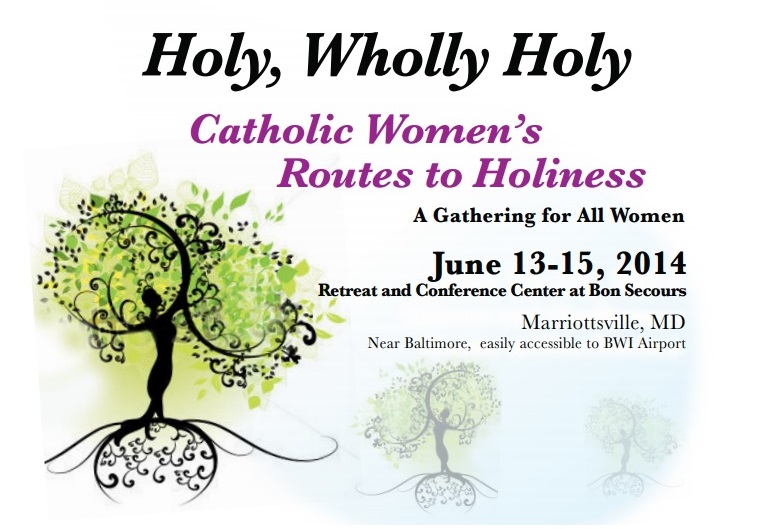

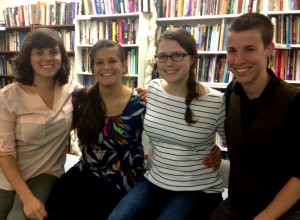

 Earth Day is an annual event held worldwide that demonstrates support for environmental protection.
Earth Day is an annual event held worldwide that demonstrates support for environmental protection.

